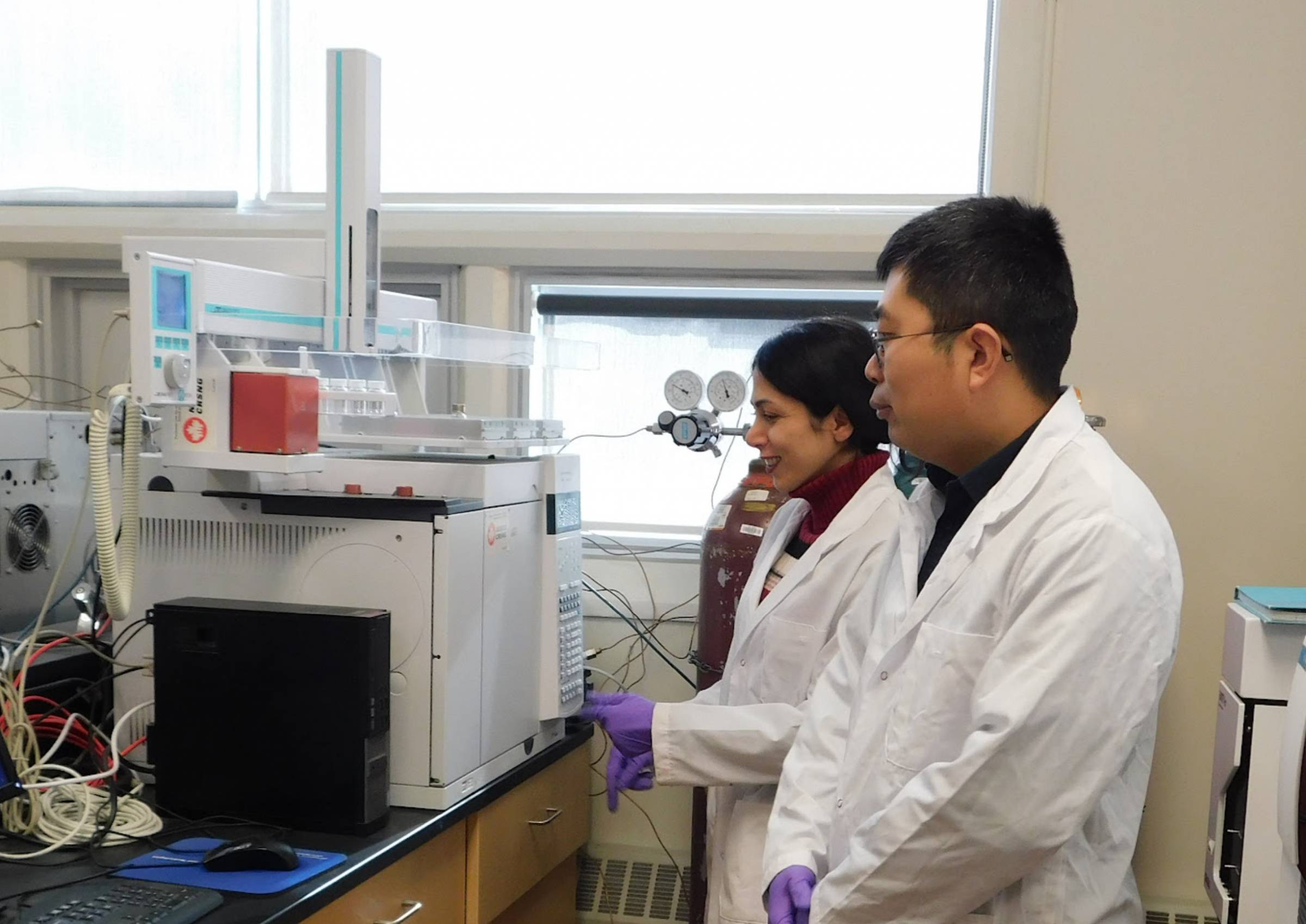
UM-led research transforming water treatment
New treatment technologies for cleaner drinking water
Drinking water is under threat. Rivers and lakes, essential for sustaining life, have become increasingly contaminated by a cocktail of thousands of chemicals from pharmaceuticals, pesticides, cosmetics and many other sources. These persistent and mobile micropollutants are breaking through conventional and outdated water treatment systems, posing risks to human and environmental health.
A groundbreaking initiative, led by Dr. Chengjin Wang, Assistant Professor, Price Faculty of Engineering, aims to transform the way drinking water is treated. He is developing novel, cost-effective technologies that will safeguard drinking water locally and globally. His research, funded by the Canada Foundation for Innovation – John Evans Leaders Fund, seeks to tackle the critical shortcomings of outdated water treatment systems and identify innovative solutions.
“Micropollutants make their way to waterways from field run off or sewage systems and often break through conventional water treatment processes, contaminating drinking water,” says Dr. Wang. “We need to carefully monitor micropollutants and create innovative solutions to address the problem effectively and sustainably.”
 It is particularly urgent for water utilities that currently employ older and often inadequate treatment technologies for micropollutant control. In Manitoba, the water ways such as the Red and Assiniboine Rivers, provide drinking water to many communities and are laden with low concentrations of micropollutants. Despite the low concentrations, certain micropollutants have the potential to negatively impact human health over the long term. Without improved treatment, there will be an increased risk of hormone imbalance and certain cancers. Water quality becomes increasingly important as our deepened understanding of the effects of chemicals has led to more stringent guidelines and regulations.
It is particularly urgent for water utilities that currently employ older and often inadequate treatment technologies for micropollutant control. In Manitoba, the water ways such as the Red and Assiniboine Rivers, provide drinking water to many communities and are laden with low concentrations of micropollutants. Despite the low concentrations, certain micropollutants have the potential to negatively impact human health over the long term. Without improved treatment, there will be an increased risk of hormone imbalance and certain cancers. Water quality becomes increasingly important as our deepened understanding of the effects of chemicals has led to more stringent guidelines and regulations.
Innovative and cost effective solutions using UV light
To address current challenges, Dr. Wang will work with Manitoba municipalities to monitor micropollutants before and after treatments. This extensive data collection will create a database to help evaluate the effectiveness of current treatment systems.
Findings will be applied to inform the development of innovative solutions, including ultraviolet light-based advanced oxidation processes (AOPs) that will help eliminate harmful micropollutants from water. New cost-effective technologies will include patentable reactors, sensors and software to improve the safety of drinking water. These innovations will not only be cost-effective but also scalable, with potential applications worldwide.
“Congratulations to Dr. Wang on this important funding,” says Dr. Mario Pinto, UM Vice-president Research and International. “This innovative research will help both local and global communities facing water insecurity. By developing methods to produce safe drinking water, Dr. Wang’s work will help further UM’s commitment to improving global public health.”
The resulting innovative technologies have the potential for commercialization and will support expanded collaborations with industrial partners and utilities, and the training of personnel to be Manitoba’s water treatment leaders in the future.
Research at the University of Manitoba is partially supported by funding from the Government of Canada Research Support Fund.






